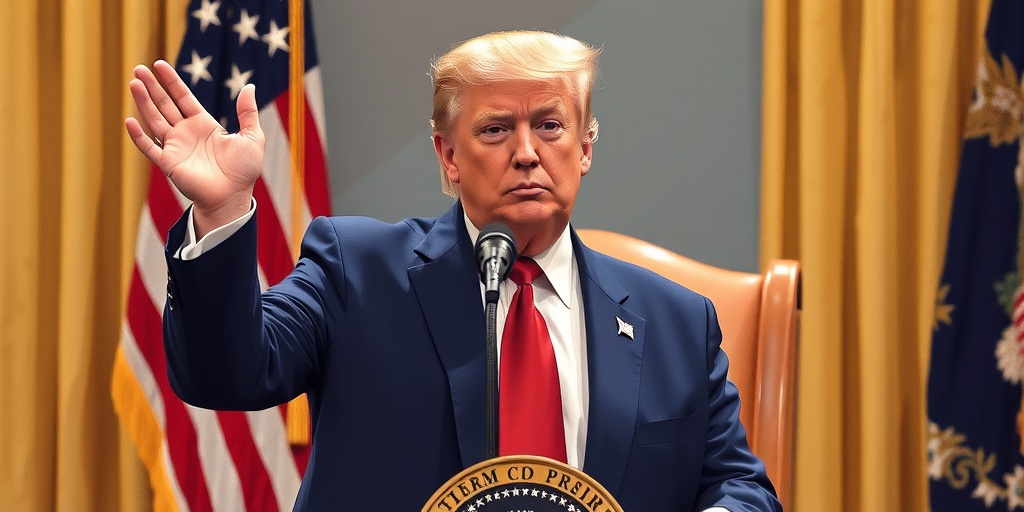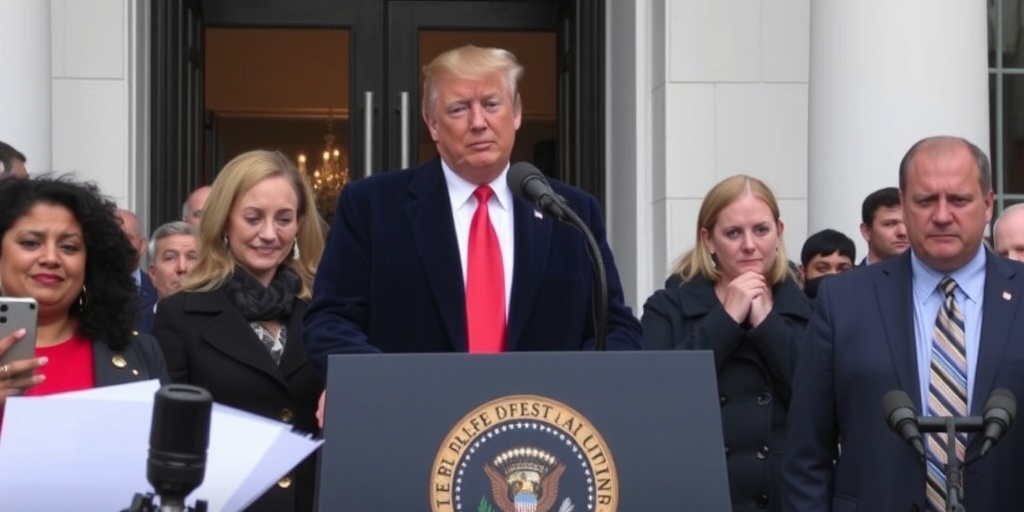Now Reading: Trump’s I.R.S. Battle: Reduced Audits and Staffing Crisis
-
01
Trump’s I.R.S. Battle: Reduced Audits and Staffing Crisis
Trump’s I.R.S. Battle: Reduced Audits and Staffing Crisis

Title: IRS Employees Face Layoffs Amid Reorganization Efforts Under Trump Administration
In a stark turn of events, Beth Crowell, a dedicated accountant who recently joined the Internal Revenue Service (IRS), is among thousands of workers facing layoffs as the agency navigates a tumultuous restructuring process. Crowell had hoped to utilize her extensive experience in corporate accounting to help the IRS enhance tax collections for the federal government. Her optimism was short-lived, however, as recent directives from the Trump administration began impacting staff levels dramatically, particularly within the IRS’s large business and international division.
Crowell, who began her role in July, was excited about joining a team tasked with auditing a multinational company generating approximately $3 billion annually. This firm’s tax practices had never been scrutinized before due to a lack of skilled auditors within the IRS. Crowell’s arrival, alongside thousands of other qualified tax professionals hired to bolster the agency’s capabilities, represented a concerted effort to reclaim enforcement power lost over previous years.
However, the situation took a drastic turn with the implementation of layoffs that plagued the IRS. Approximately 7,000 positions were eliminated, with nearly half of those from Crowell’s division alone. This has raised concerns among tax professionals about the IRS’s ability to fulfill its fundamental mission—collecting taxes. Critical audits of large corporations and wealthy individuals, which could significantly boost federal revenue, are now at risk of stagnation.
“The momentum we had is gone,” Crowell remarked, expressing doubt about the IRS’s capacity to revive essential investigations after losing a substantial portion of its workforce. The audit she was working on, once considered a straightforward case for the IRS, is now left in limbo due to the sudden staff reductions.
The layoffs of probationary hires like Crowell signify a broader agenda from the Trump administration, which has prioritized budget cuts and a significant downsizing of the IRS, potentially halving its workforce of nearly 100,000 employees. This drastic measure is poised to diminish the level of scrutiny on tax matters, leaving many Americans with less assistance and oversight regarding their tax obligations.
As the administration appoints new leadership, including former Congressman Billy Long, questions regarding capability and experience surface. Long’s leadership is viewed with skepticism by many, especially given his limited experience in managing large organizations and an unconventional background in tax policy.
Compounding the turmoil within the IRS, high-profile figures like Elon Musk have begun exerting influence over the agency’s operational methods. Musk has sent teams to automate IRS functions and streamline its processes. This move has drawn scrutiny, with concerns over the potential misuse of vast amounts of taxpayer information for political purposes. Reports indicate that officials in the Department of Homeland Security have already approached the IRS for assistance in immigration enforcement, raising alarms about the IRS’s role shifting beyond tax collection.
The disarray within the agency is palpable as both current and former IRS officials express apprehension about its future. Amidst this backdrop, Daniel Werfel, who served as the IRS commissioner, resigned shortly after the election, indicating the precarious nature of leadership stability within the organization. His departure signaled further instability as the agency braced for a chaotic transition period marked by rapid leadership changes.
In the wake of layoffs, employees, including Caryn Burns, voiced their frustrations about the rapid turnover and challenges within the IRS. Burns, who joined the agency with hopes of reforming operations, became acutely aware of the outdated technology and insufficient staffing as the agency struggled to meet operational demands. Now, like many of her colleagues, she is left uncertain about the future of ongoing audits and initiatives designed to improve tax collection.
As the Trump administration continues to exert control over the IRS, the outlook for taxpayers and IRS employees alike remains bleak. Leaner staff and an apparent decline in enforcement capabilities could ultimately translate to higher tax evasion rates, resulting in a larger federal deficit.
Both Crowell’s and Burns’ experiences illustrate a larger narrative of uncertainty within the IRS, as layoffs threaten to dismantle the very foundation of tax enforcement in the United States. As GOP leadership pushes for radical changes, many employees stand by feeling that their efforts, training, and commitment to the agency have been rendered futile by a political reshuffle—a sentiment that echoes throughout employee ranks in the beleaguered agency. The repercussions of these changes are yet to be fully realized, but employees and taxpayers alike are left grappling with the implications of a modernized IRS that seems to prioritize political agendas over essential tax collection services.
Stay Informed With the Latest & Most Important News
Previous Post
Next Post
-
 01New technology breakthrough has everyone talking right now
01New technology breakthrough has everyone talking right now -
 02Unbelievable life hack everyone needs to try today
02Unbelievable life hack everyone needs to try today -
 03Fascinating discovery found buried deep beneath the ocean
03Fascinating discovery found buried deep beneath the ocean -
 04Man invents genius device that solves everyday problems
04Man invents genius device that solves everyday problems -
 05Shocking discovery that changes what we know forever
05Shocking discovery that changes what we know forever -
 06Internet goes wild over celebrity’s unexpected fashion choice
06Internet goes wild over celebrity’s unexpected fashion choice -
 07Rare animal sighting stuns scientists and wildlife lovers
07Rare animal sighting stuns scientists and wildlife lovers





















